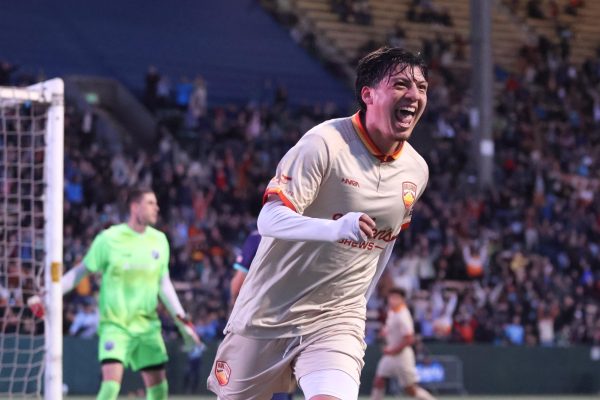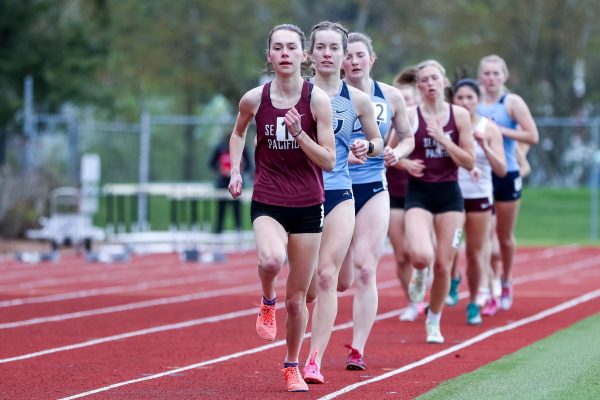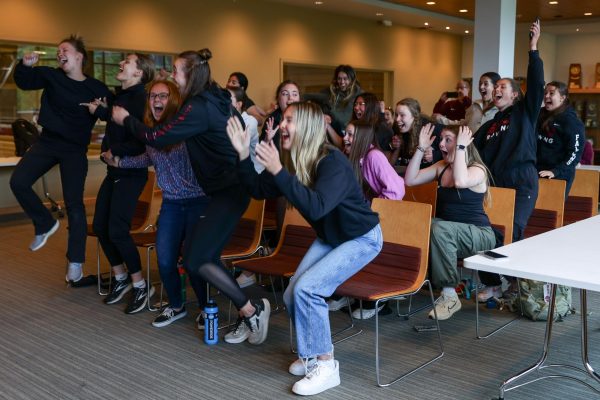Students making a difference
Social Venture Plan Competition results
April 15, 2022
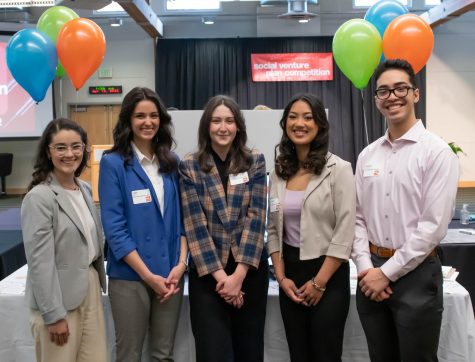
This year, 10 teams from both Seattle Pacific University and University of Washington competed in the Social Venture Plan Competition, a competition for students to create sustainable business models for social change. On April 13, the teams presented their ideas in Upper Gwinn and a winner of the competition was named.
The winning project was an app called My Monster Monitor, and it was created to help kids with Type 1 Diabetes learn how to better track their food, activity and blood glucose levels. The app encourages kids to take control of their T1D, as this is something they will live with for the rest of their lives.
Jenna Rasmussen, a senior visual communications design major and member of the My Monster Monitor team, believes that their app will help fill a need for kids with T1D.
“We’re addressing a much greater need, and that is education,” Rasmussen said. “We’re here to help kids address their symptoms and help them understand what’s happening because the scariest thing for a kid with diabetes is not knowing what’s happening to them.”
Rasmussen said that the inspiration for this project came from a child she babysat who was diagnosed with T1D.
“Zac was diagnosed with diabetes and he said the scariest thing was not knowing what was happening to him and trying to find the new normal,” Rasmussen said. “One way that we’re helping them is teaching them how to create healthy daily habits.”
While My Monster Monitor focused on helping kids, other projects like Ultropia looked to solve a different issue. Lloyd Dees, a graduate student from the University of Washington and member of the Ultropia team, helped create an ultrasonic washer and dryer which received second prize.
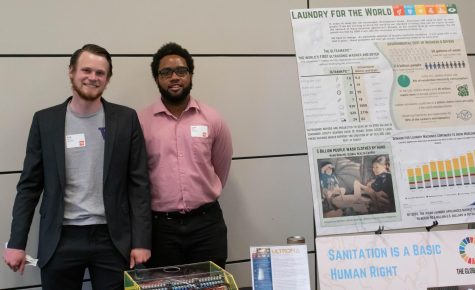
“It washes and dries in less than twenty minutes and uses less energy and water per load,” Dees said. “Our overall goal is to get it out to the developing world and hospitals so they can clean and dry clothes.”
Quan Ngyuen, senior mechanical engineering major, was a part of a team that also focused on creating change globally. The Gloen Cart was created to make transportation of vital medication and vaccines to hard-to-reach communities easier. The team has big plans for how they are going to improve upon their original model in the future.
“In the future we’re going to make it four-wheel drive. Each wheel will have its own motor and suspense system which will help with different terrains,” Ngyuen said.
Other teams focused on more social issues. Joshua Botelho, a senior business administration major, was a part of the Host team, a program seeking to end racial discrimination and bring people together after the pandemic.
“We’re hoping to solve the issue [racial discrimination] by bringing in culture and educating people about cultures through food and entertainment,” Botelho said. “We partner with a local restaurant that correlates with that culture. We’re looking for it to be a restaurant that was affected by covid, that had to close temporarily or even permanently and help them get back on their feet.”
While this has been a very long process, Rasmussen is grateful for all the support she and her team received.
“I feel overwhelmed by the love and support from not only my team but from everyone who believed in me. A huge thank you to the friends, Zac and his family, students, professors, mentors, judges and people who came to support us. It truly meant the world,” Rasmussen said.

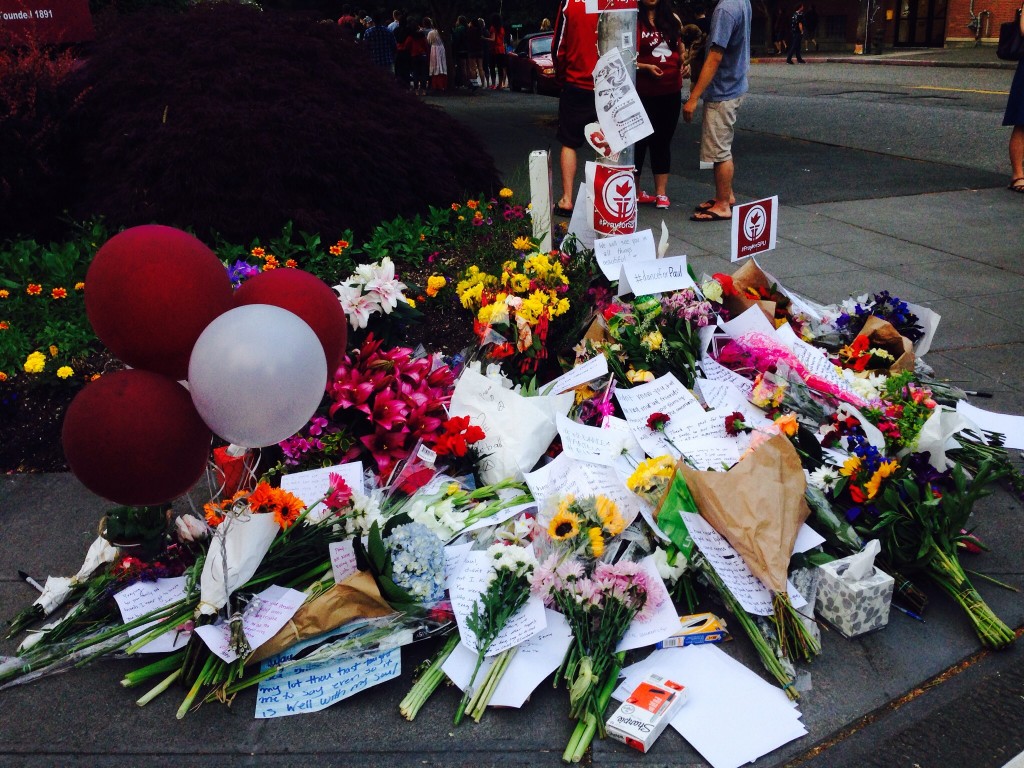

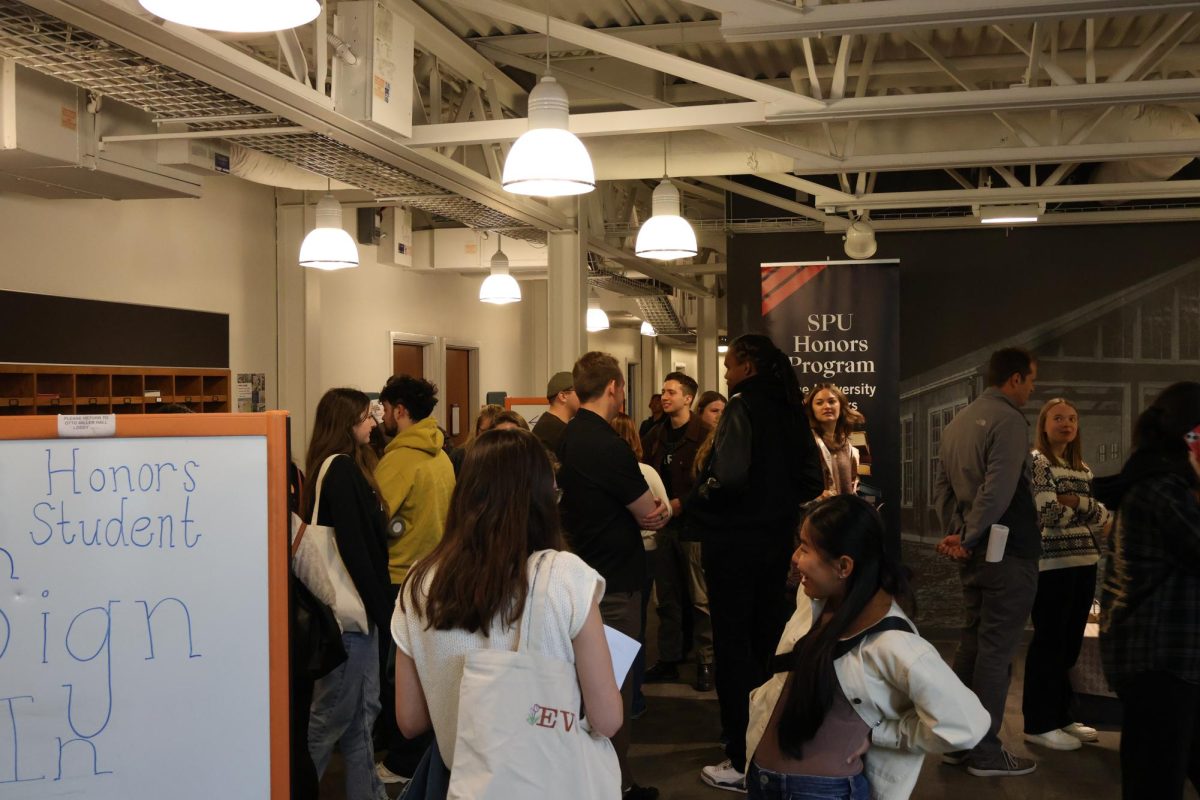
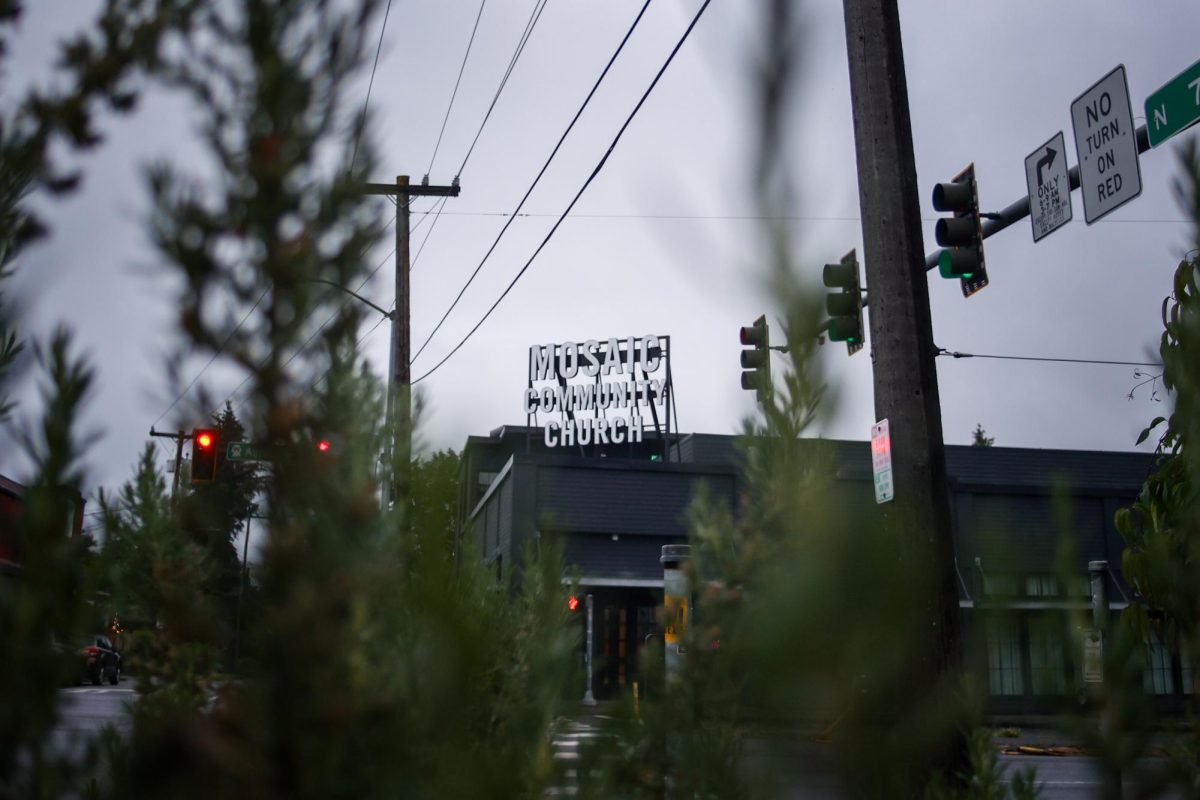
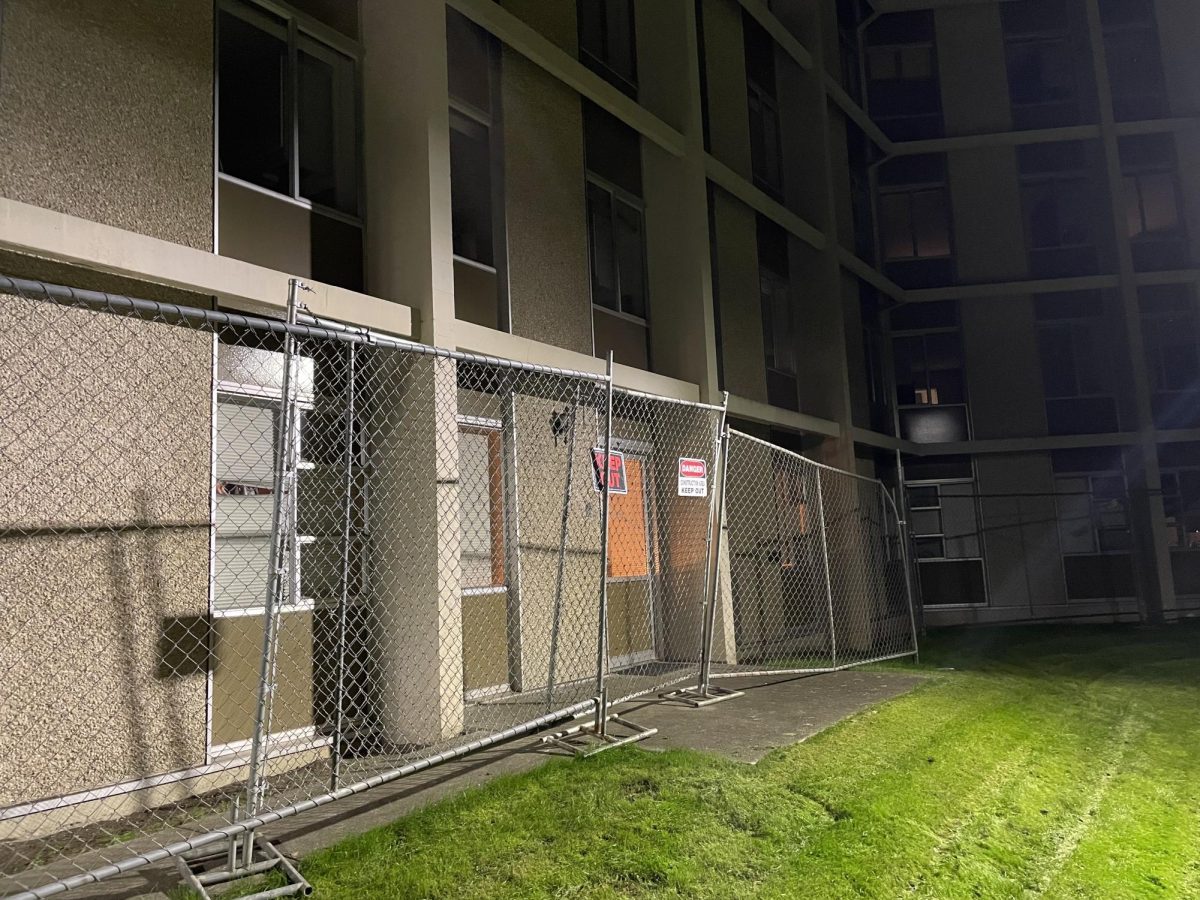









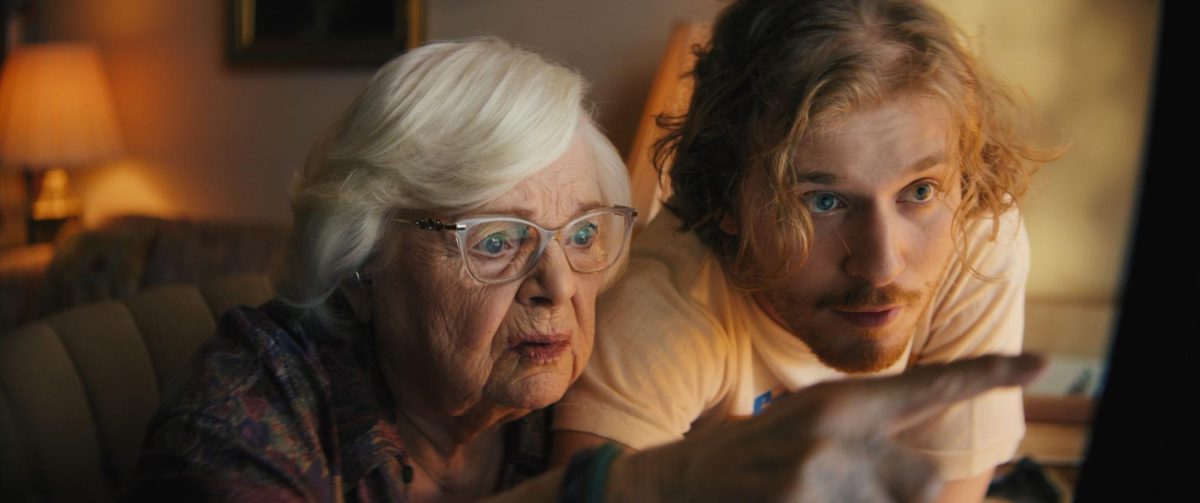
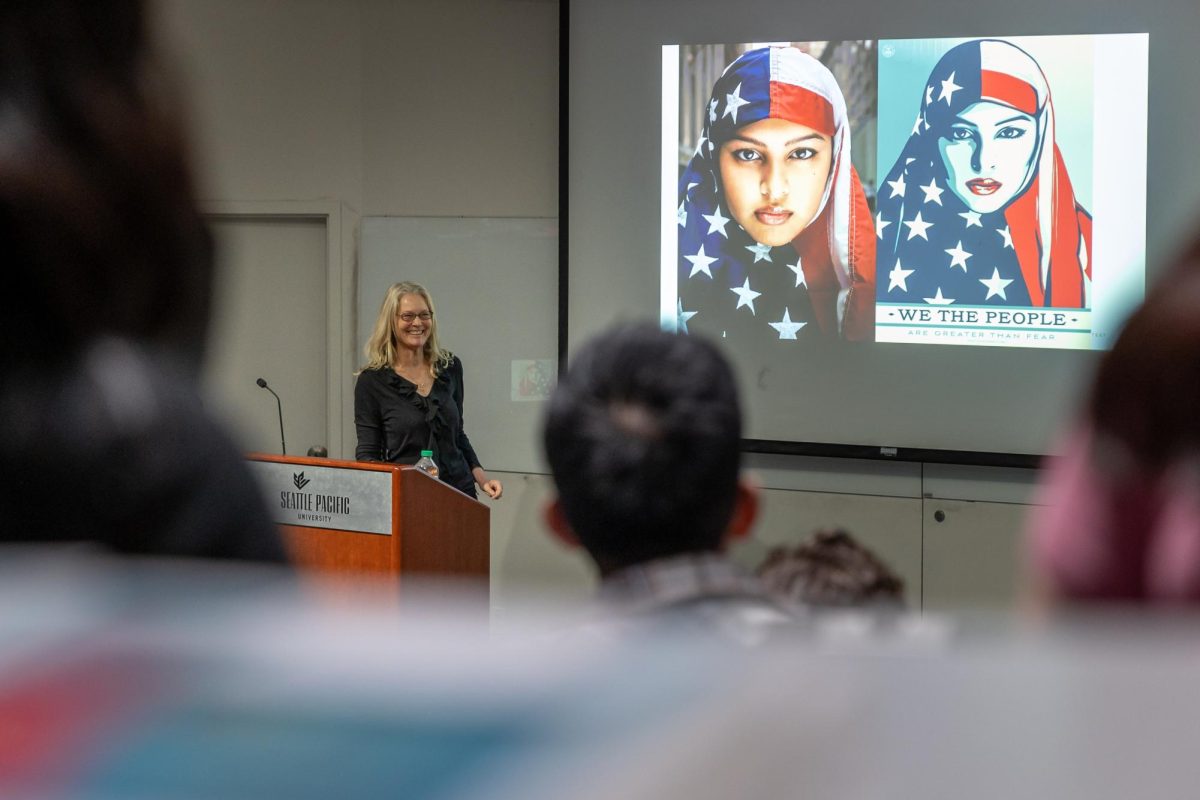


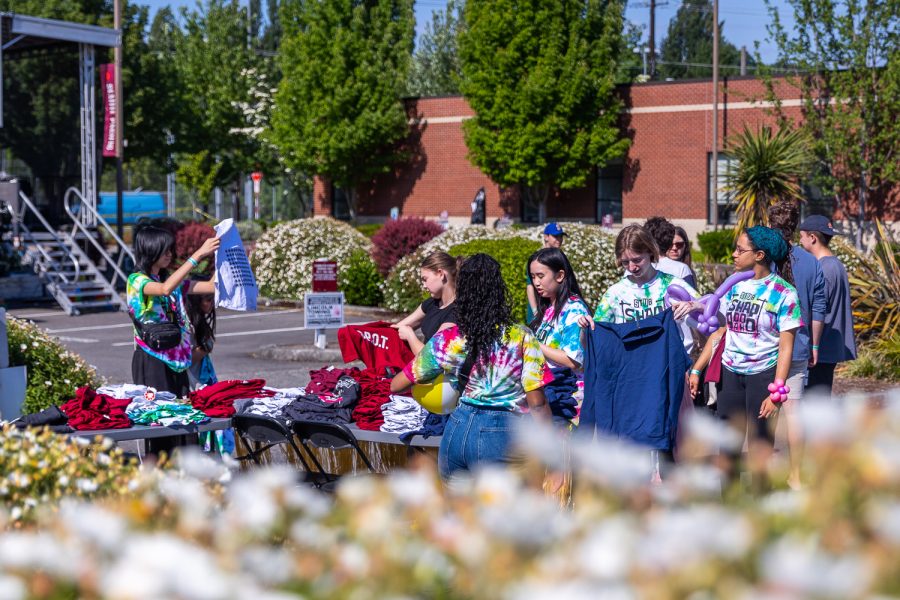
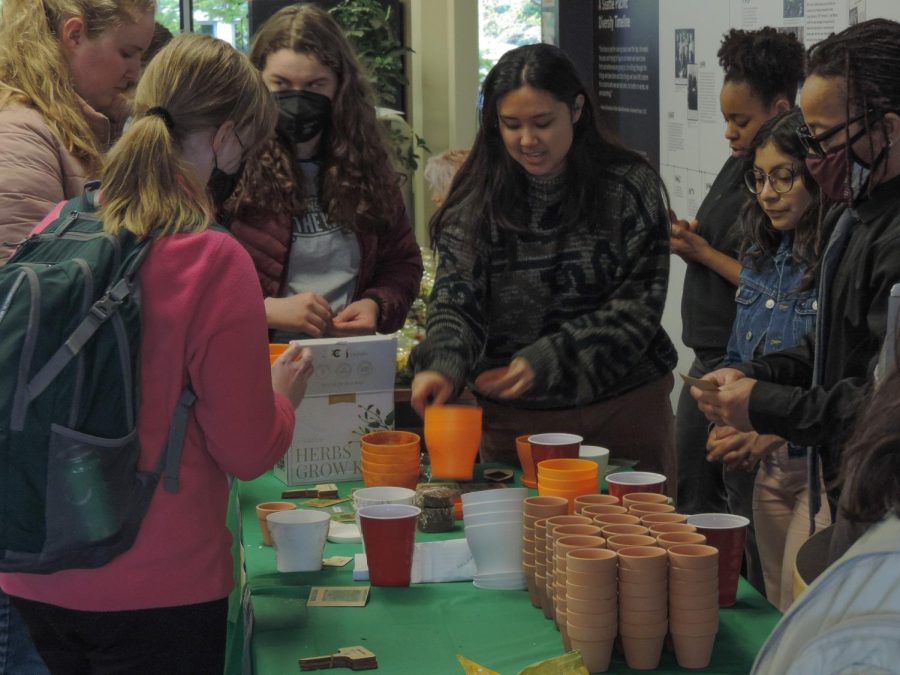

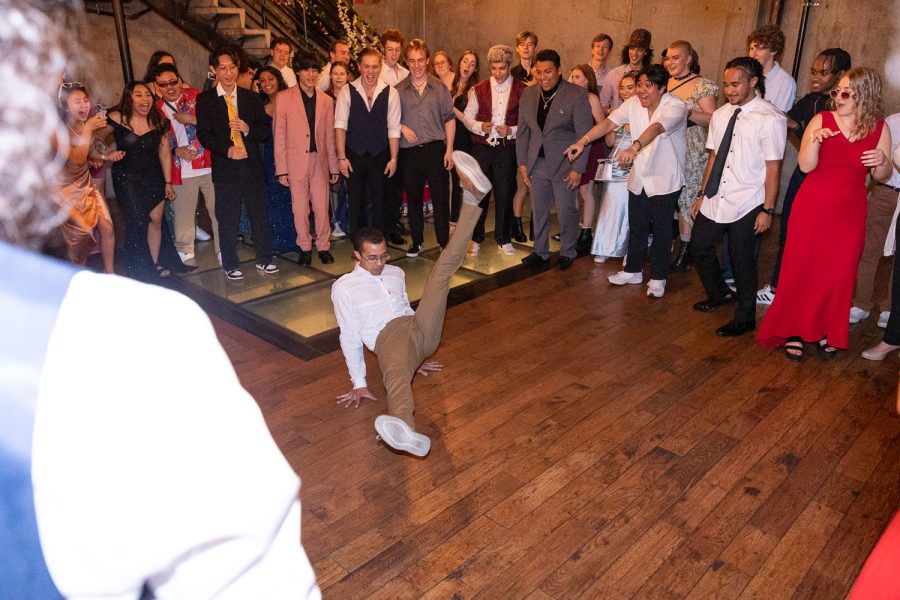











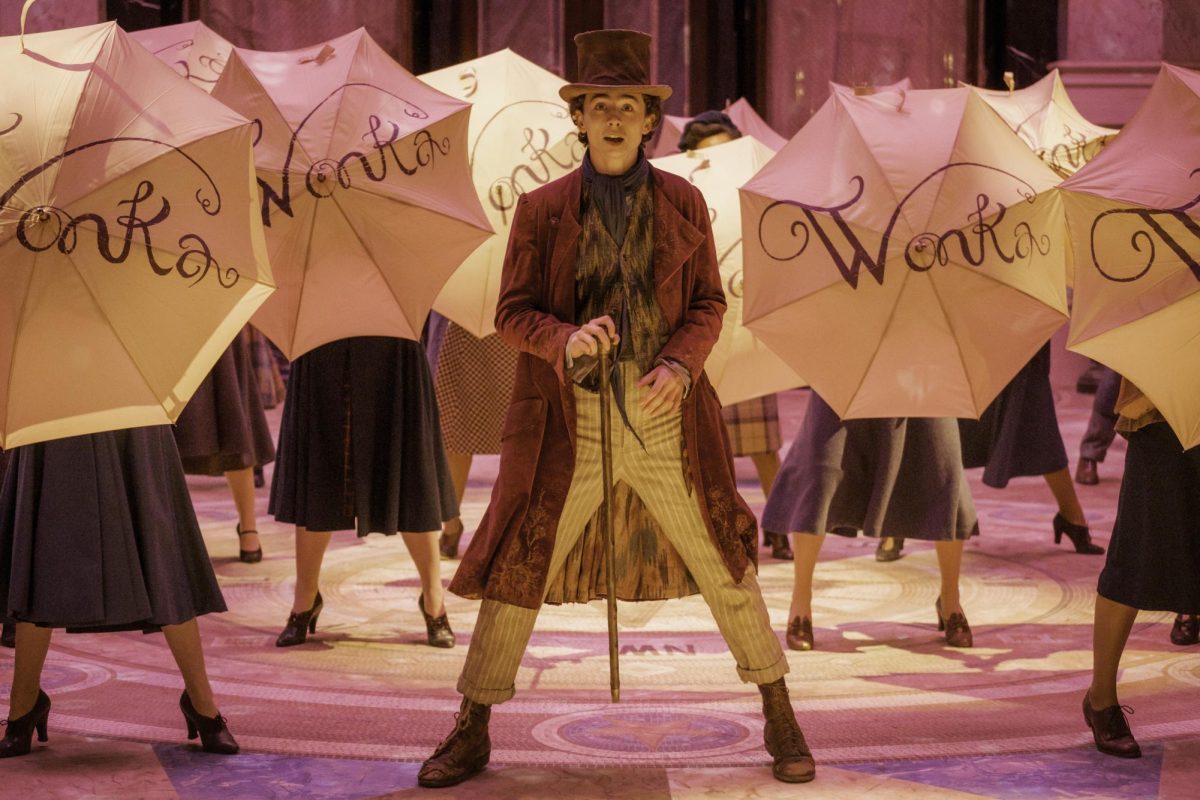




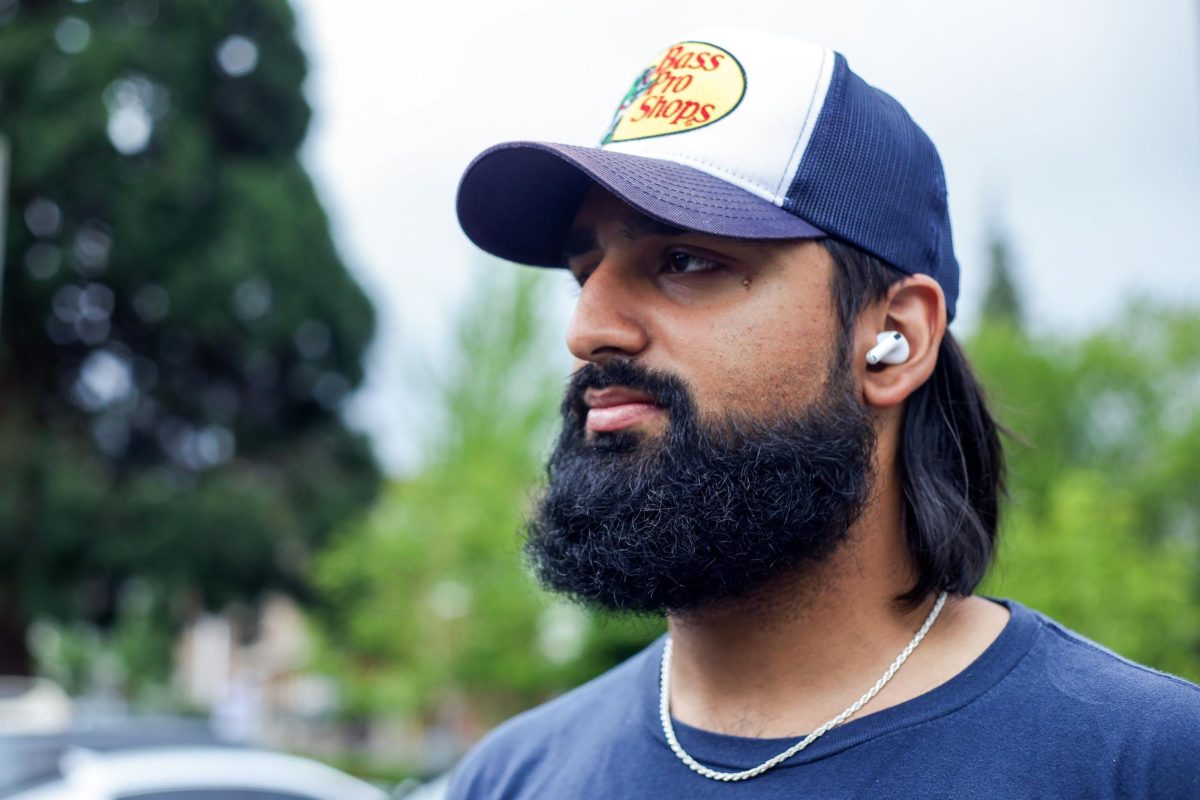
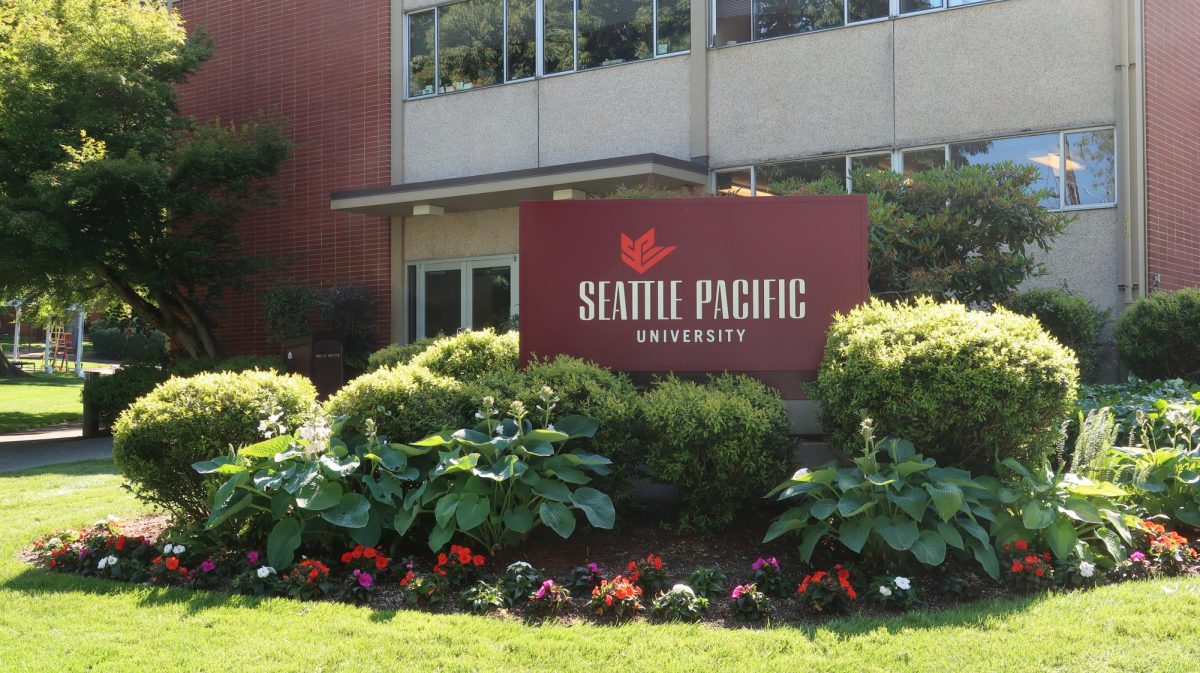
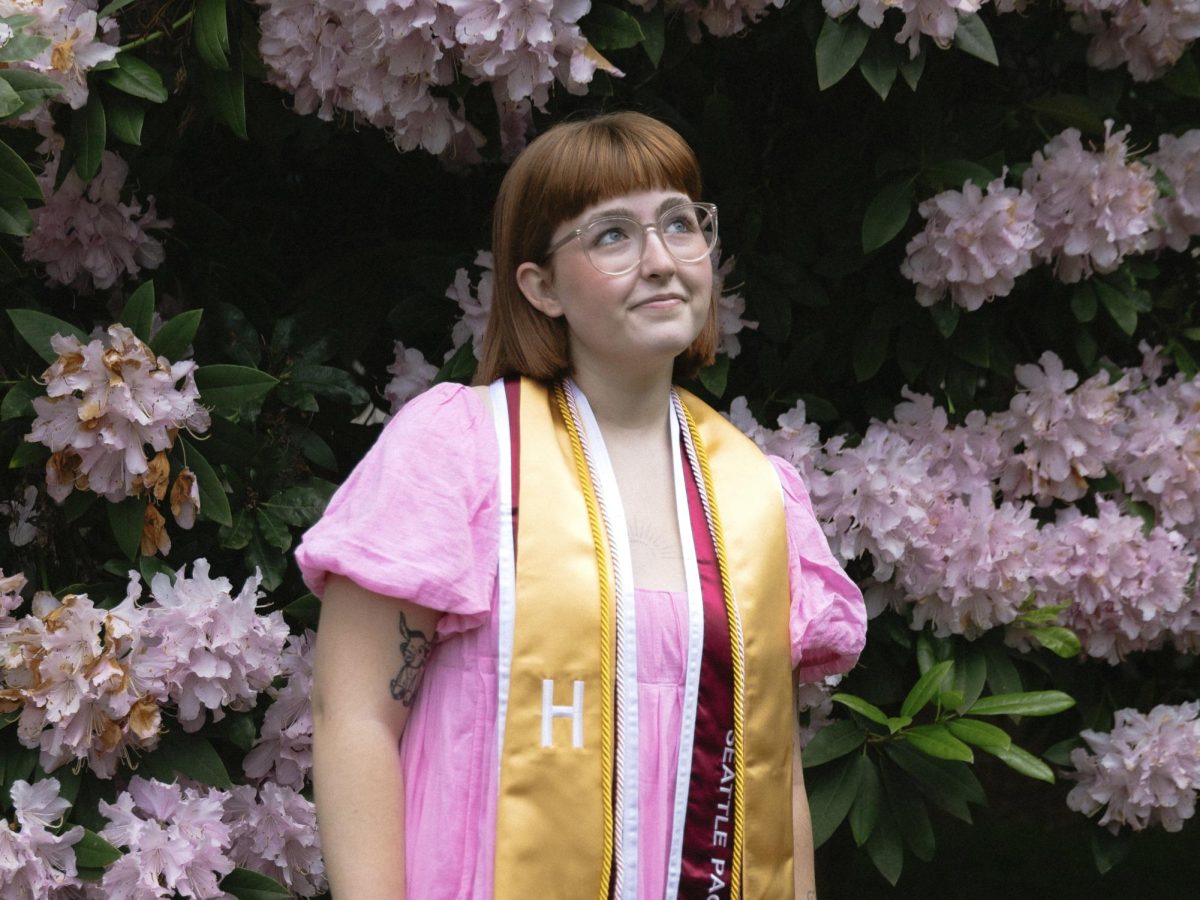

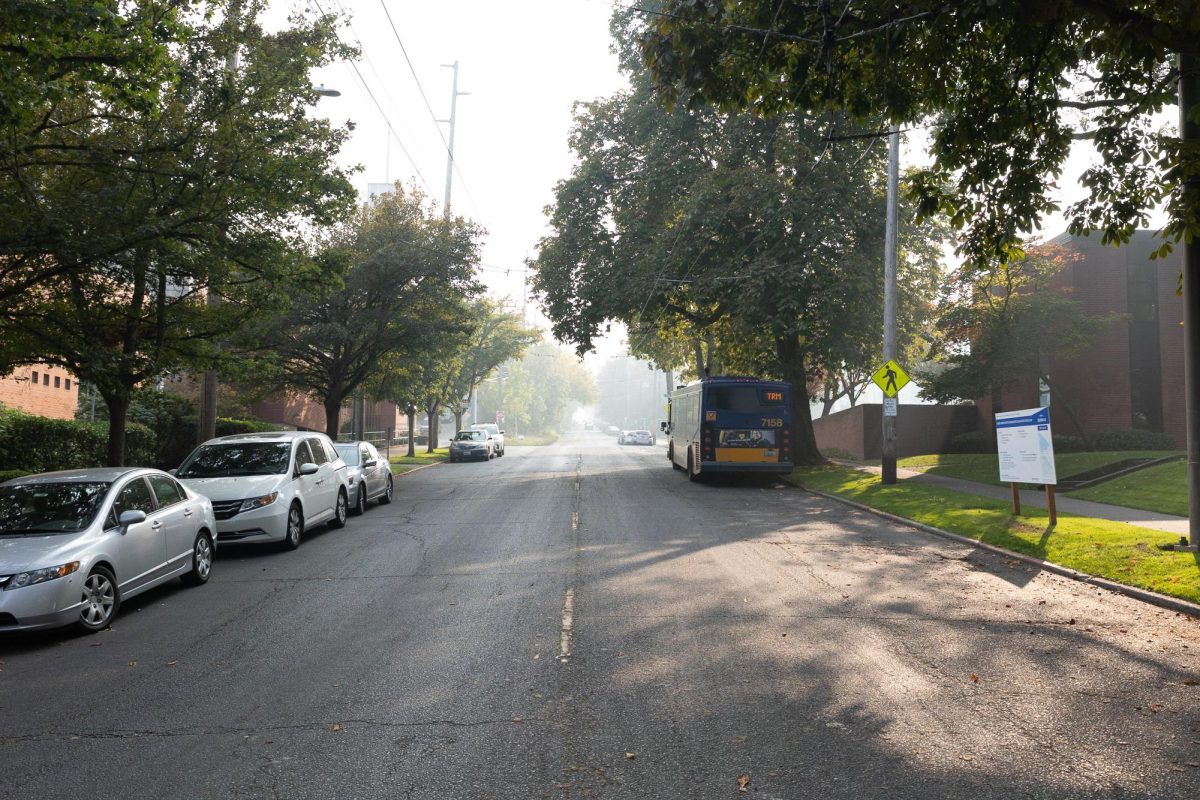
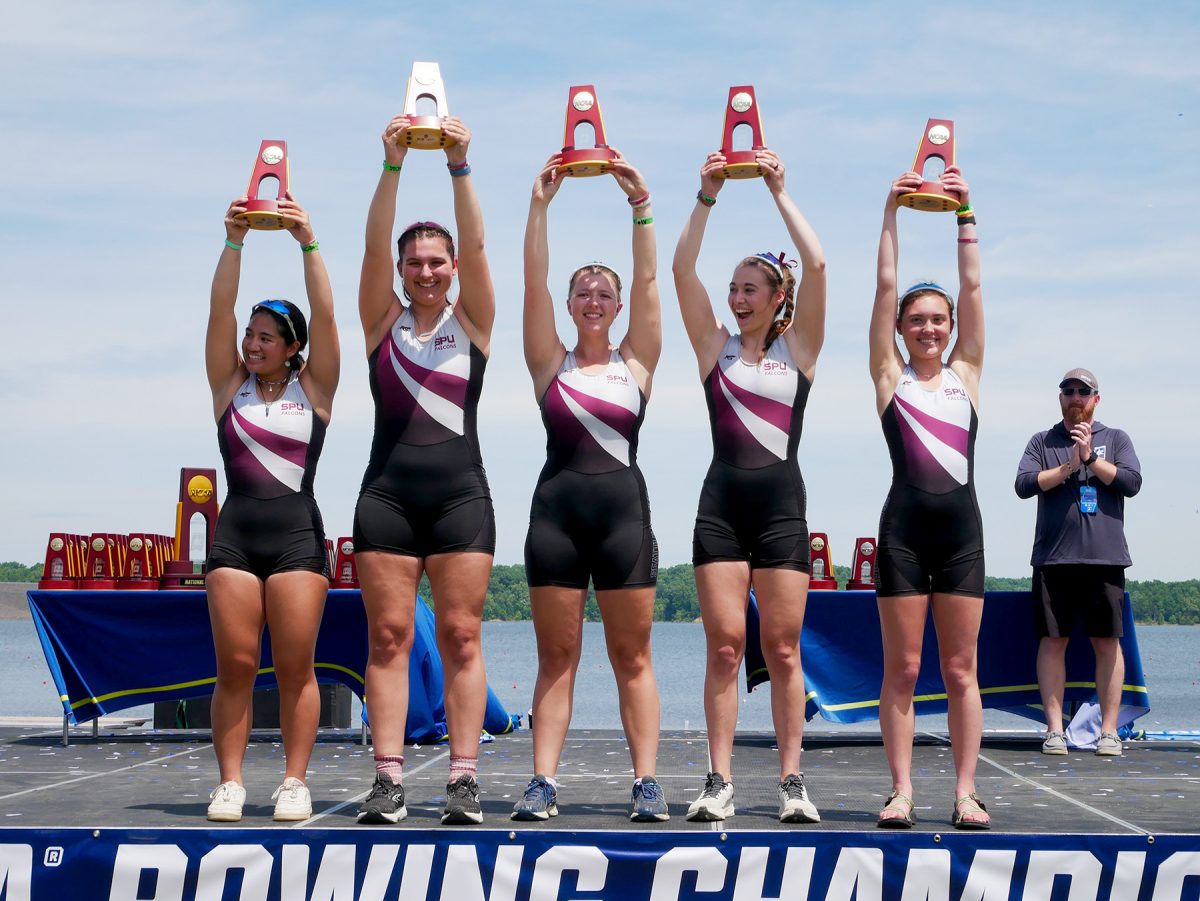
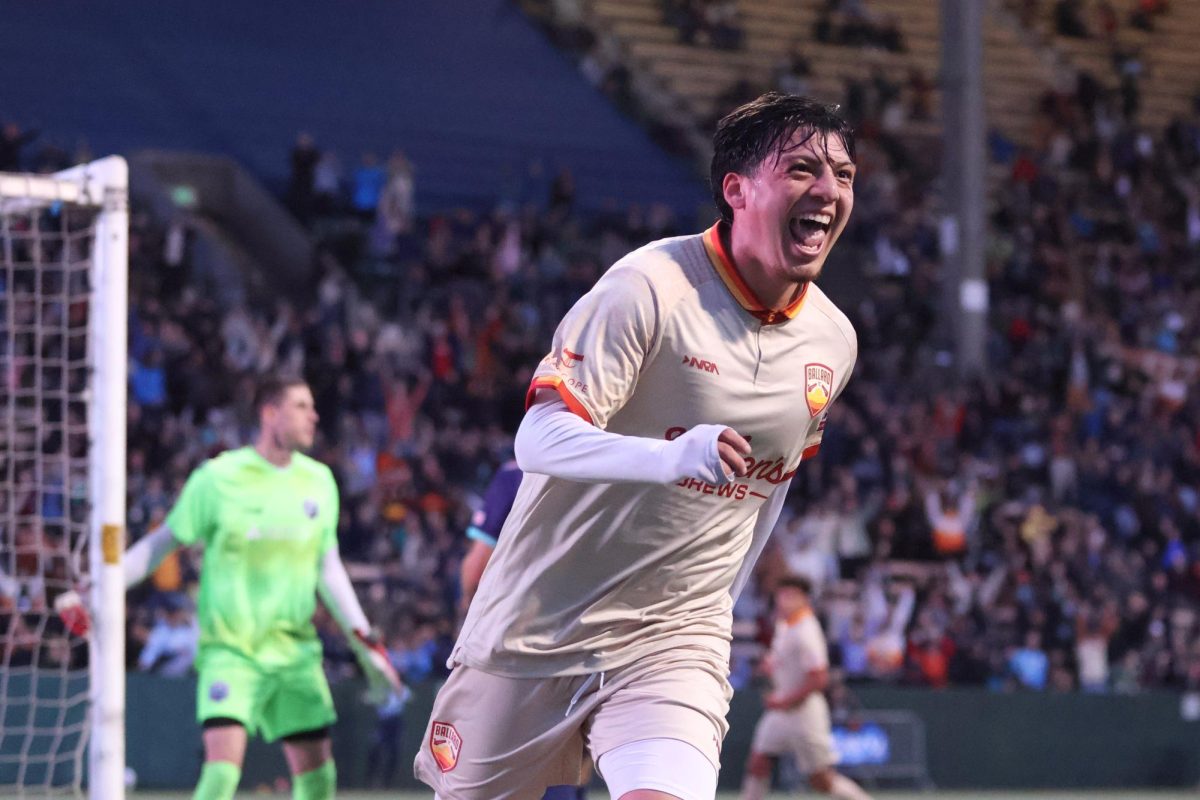
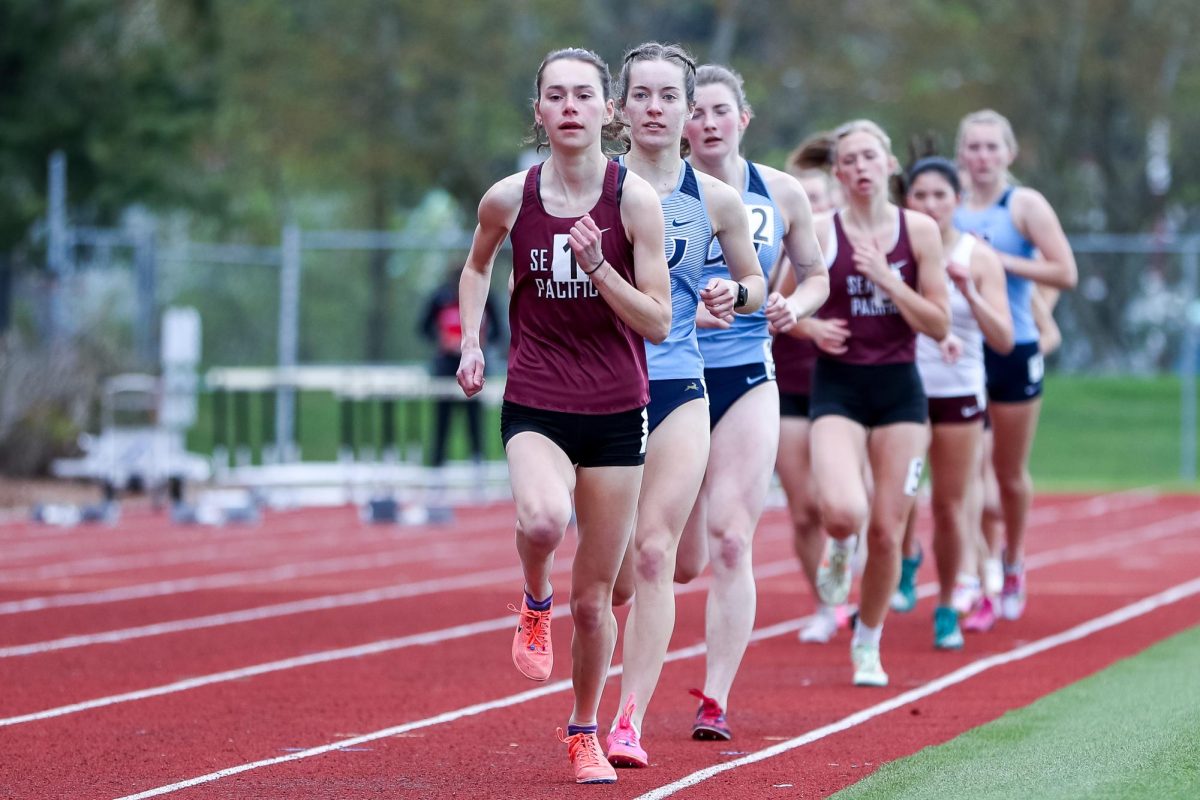
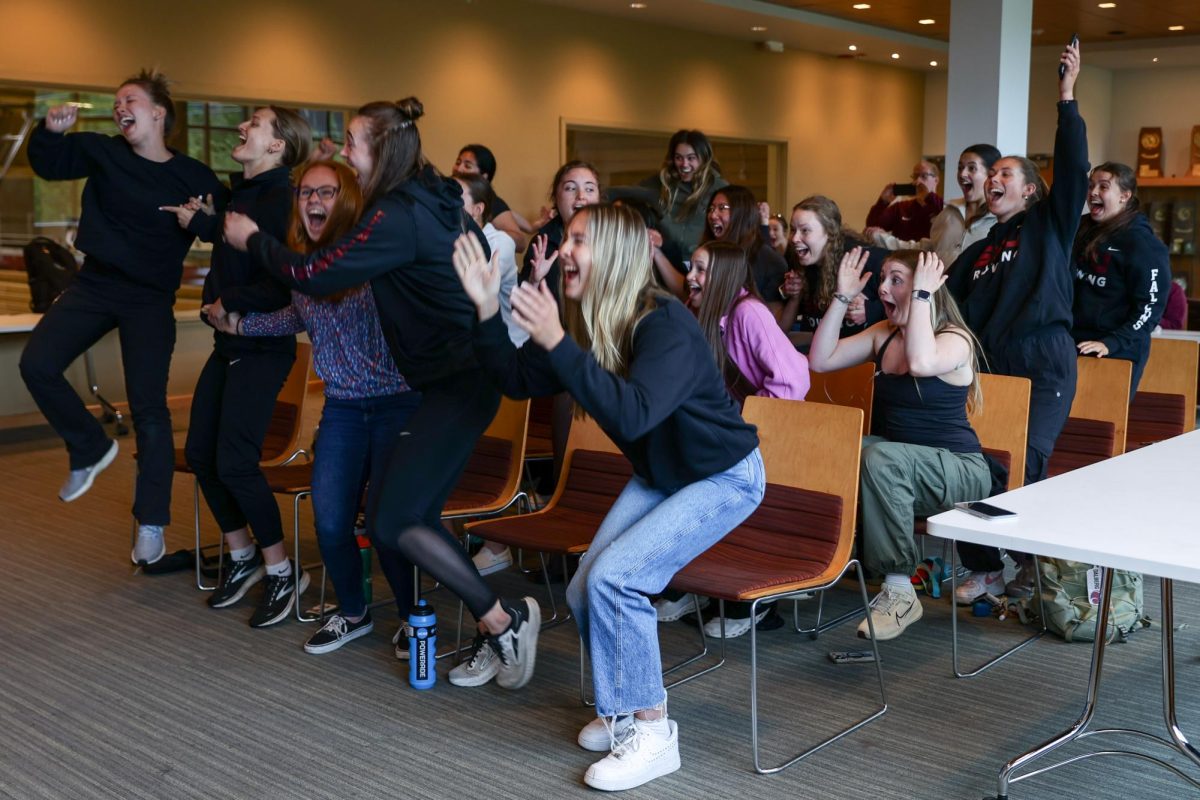
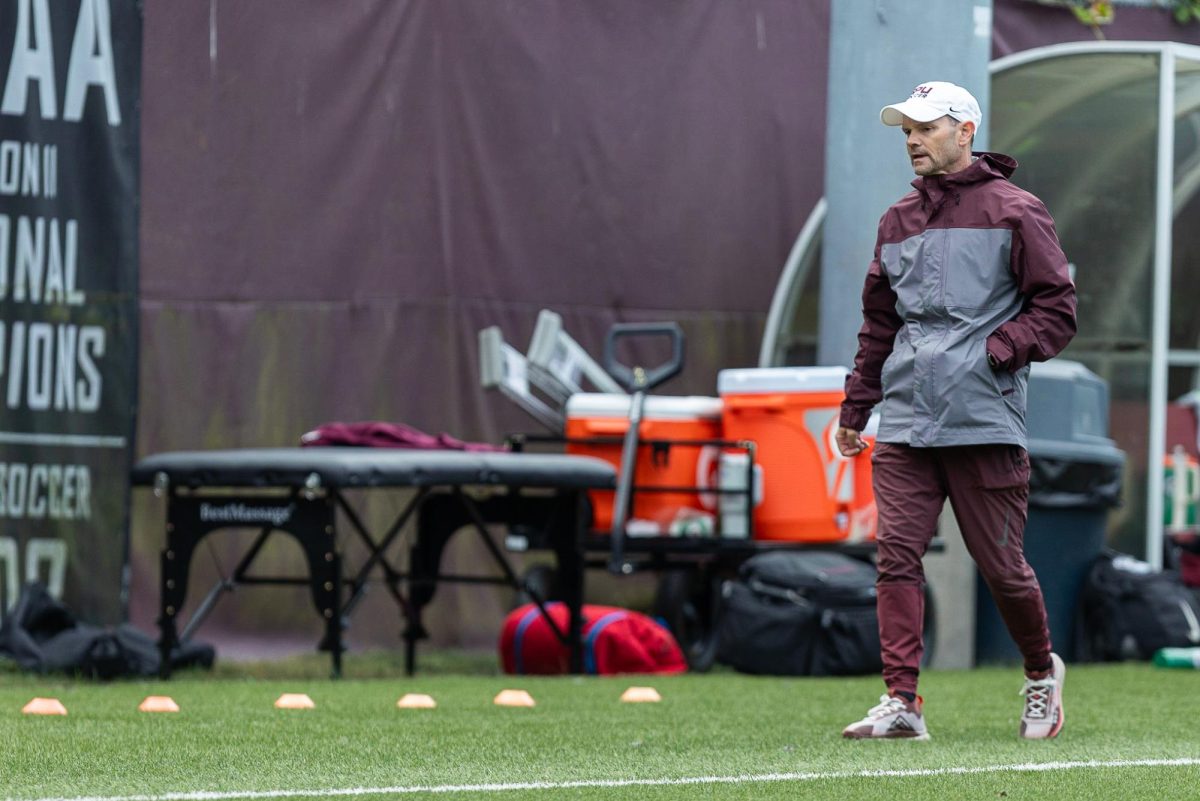
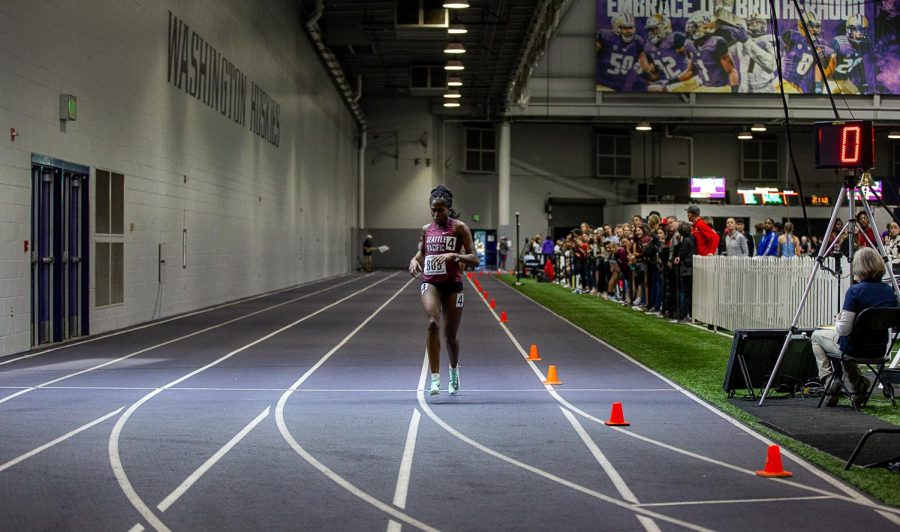
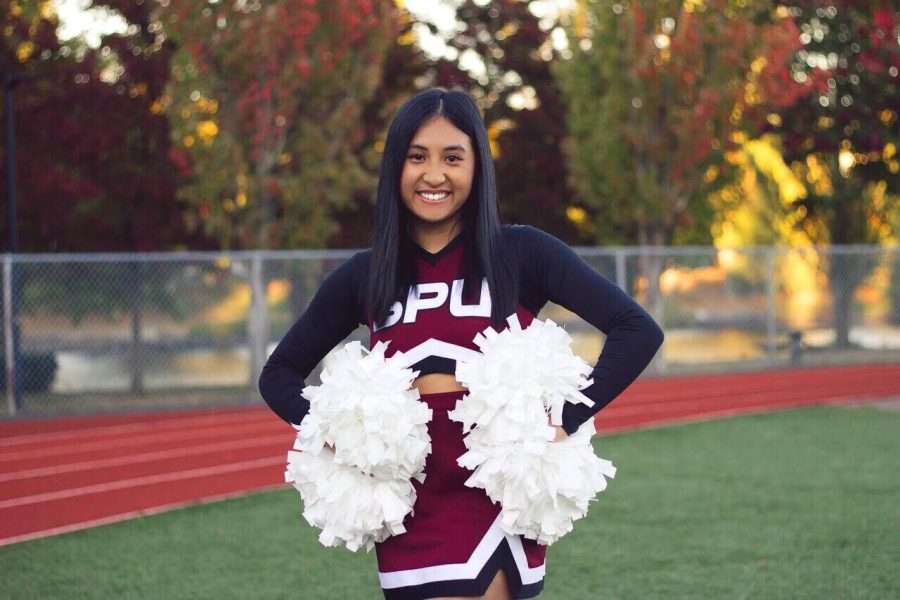
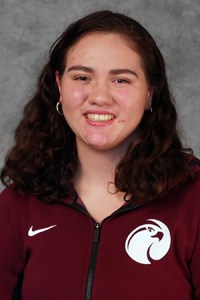
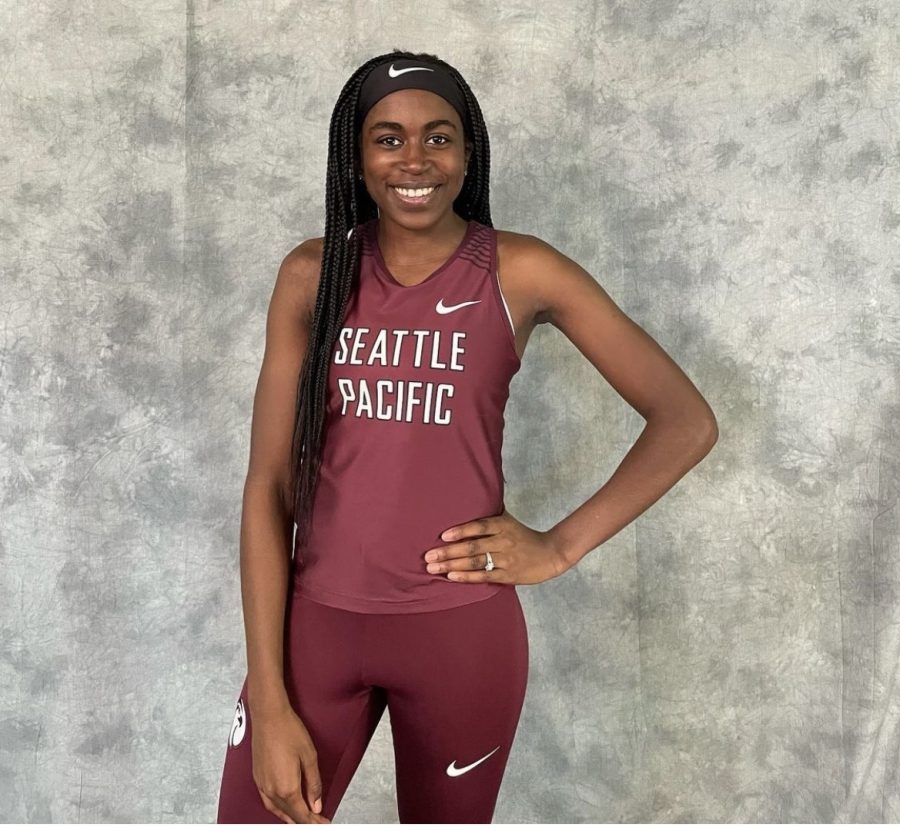
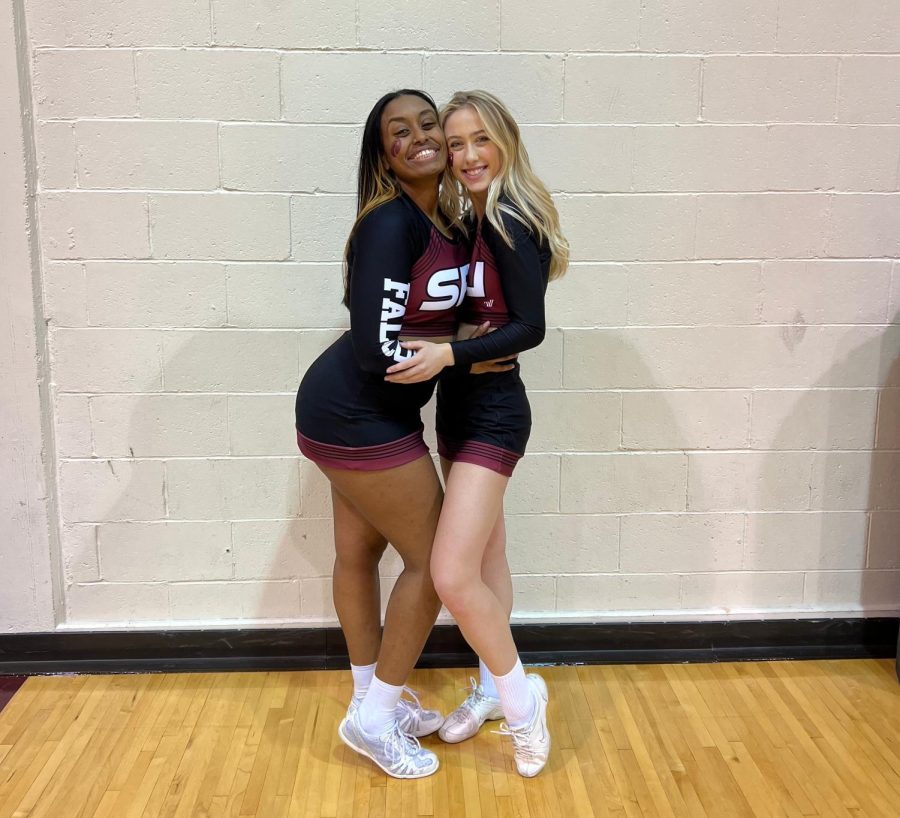
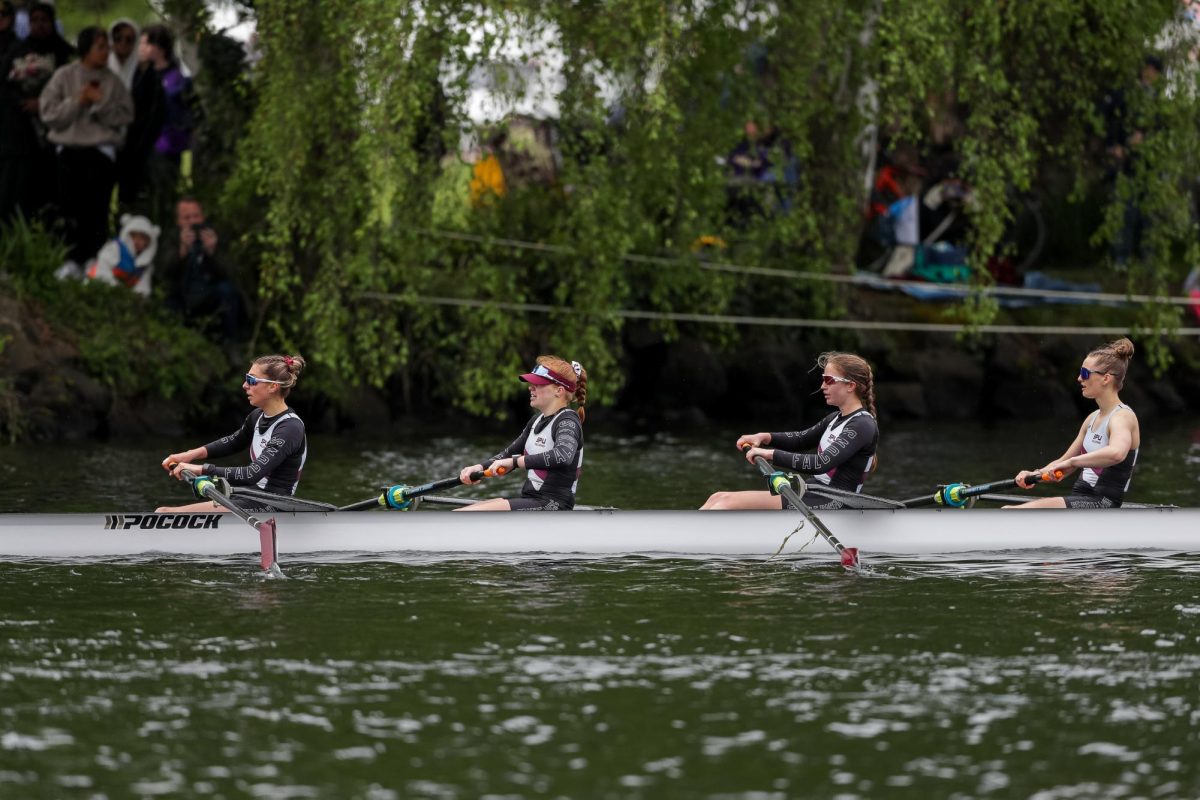
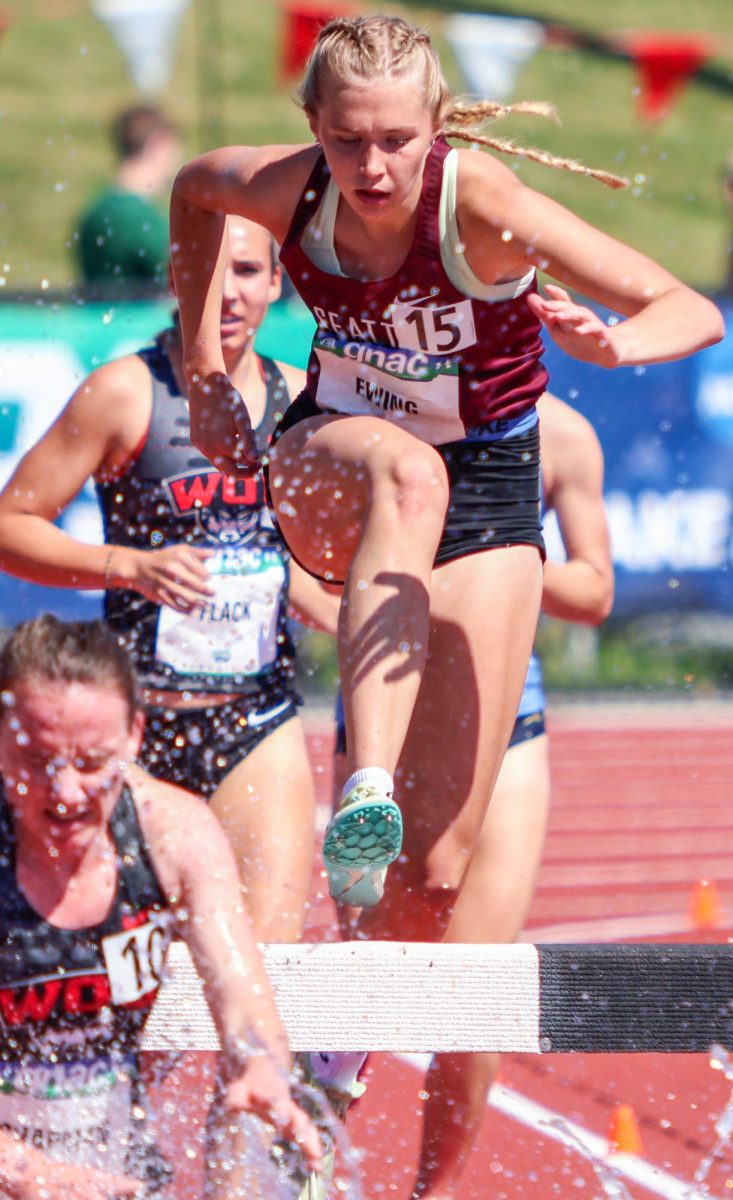
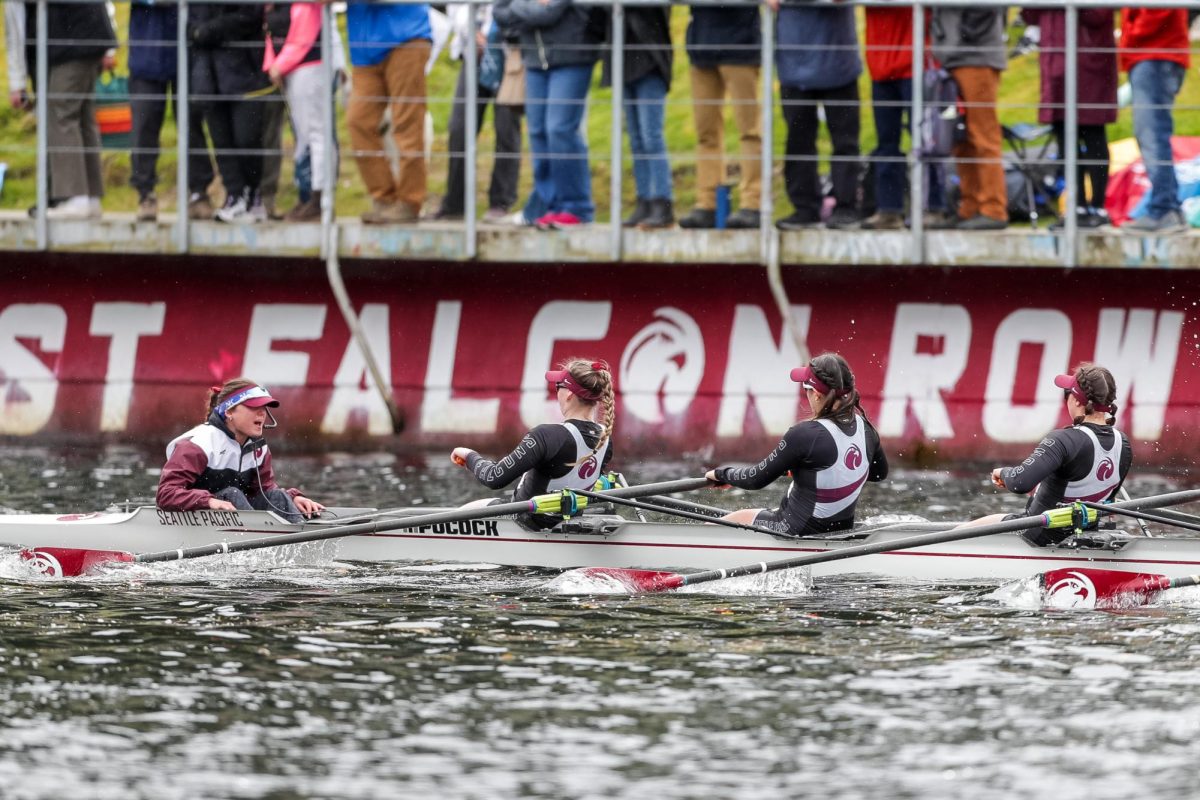
























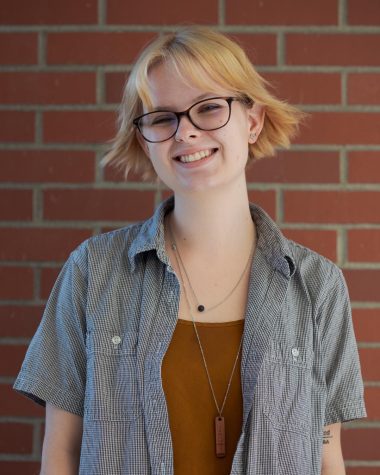

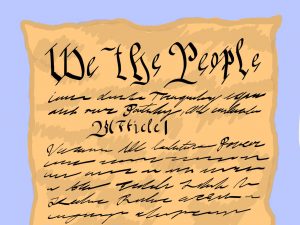
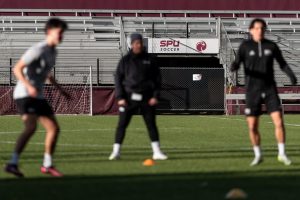
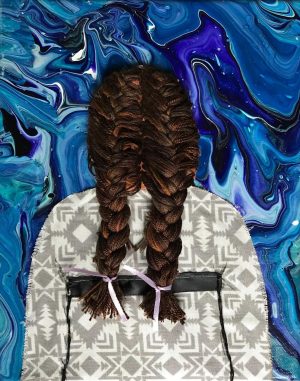
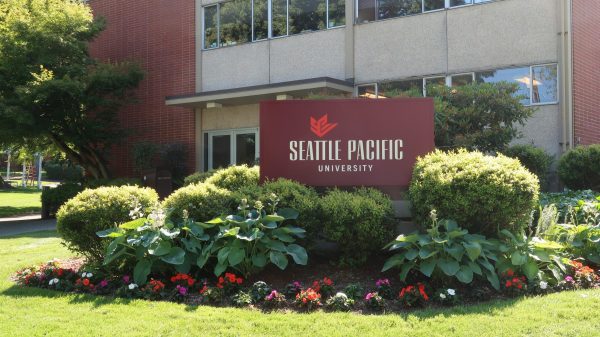
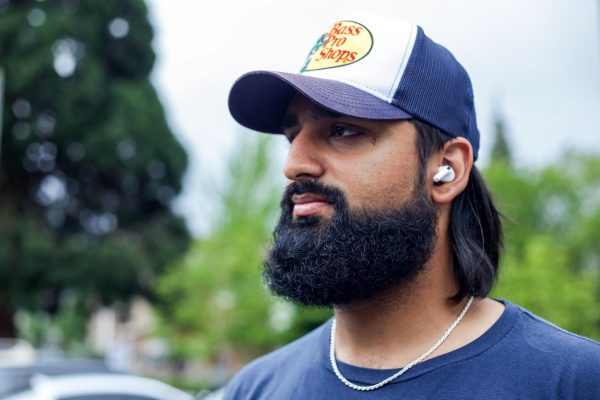
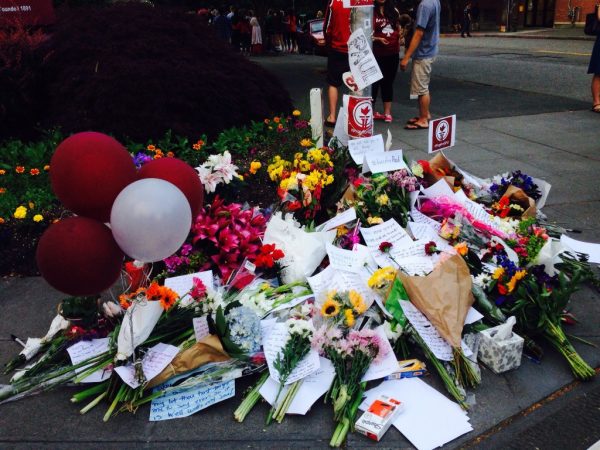
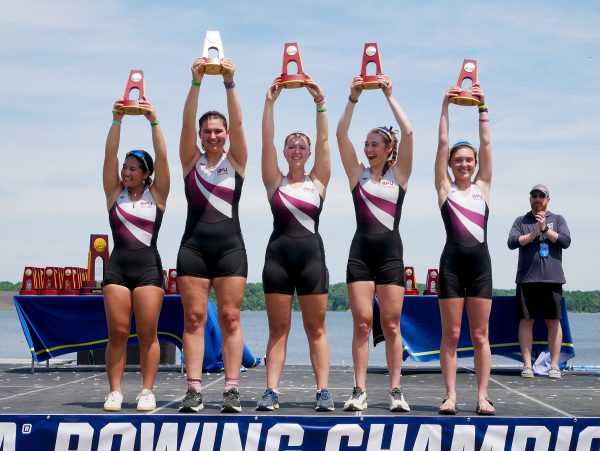
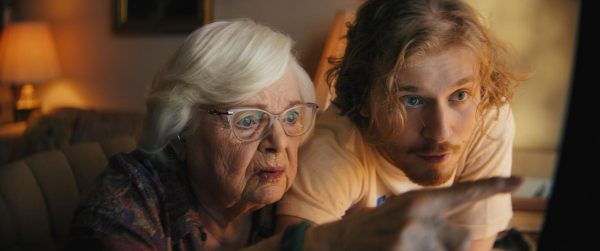
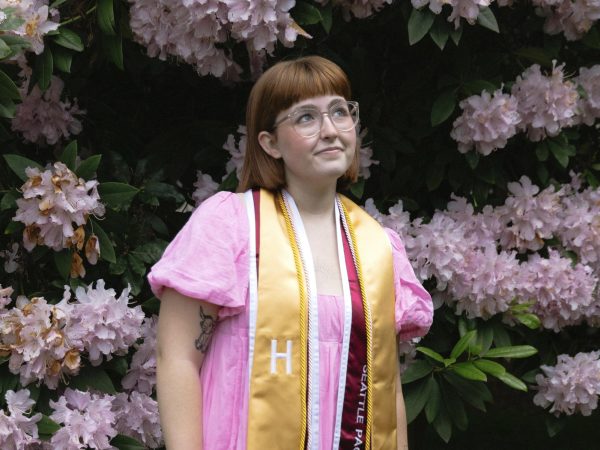
![Queer joy at SPU’s [Redacted] Fest](https://thefalcon.seapacmedia.com/wp-content/uploads/2024/05/04_14_23_9999_1-600x400.jpg)
